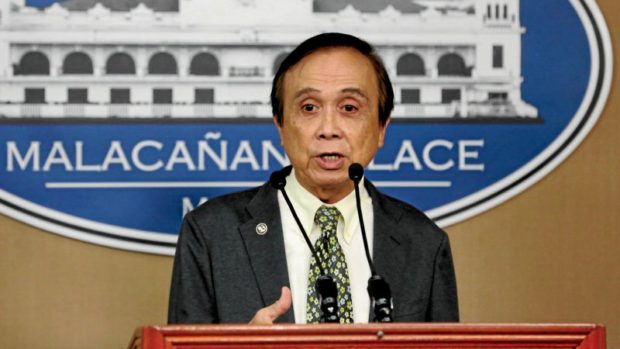
Socioeconomic Planning Secretary Ernesto M. Pernia (File photo by JOAN BONDOC / Philippine Daily Inquirer)
An extension of martial law in Mindanao will not impact on the island’s local economy as observed when it was implemented in the past six months, officials of the state planning agency National Economic and Development Authority (Neda) said Thursday.
“There was really no discernible impact of the martial law declaration,” Neda Undersecretary Rosemarie G. Edillon said.
President Duterte in May declared martial law covering the entire Mindanao when ISIS supporters occupied Marawi City.
READ: Duterte formally asks Congress to extend martial law in Mindanao ‘til end of 2018
Clashes between the terrorists and government forces lasted five months.
Edillon said they observed a slight decline in inflation in Mindanao during the June to November period compared with the rate of increase in prices of basic goods from January to May.
To compare, inflation was steady in Luzon and Visayas during the same period, she said.
As for the labor market, Edillon said jobs were not impacted in most of Mindanao, except Marawi itself.
If the government will extend martial law, “it is important that the military maintain the high moral ground,” Edillon said.
Socioeconomic Secretary and Neda chief Ernesto M. Pernia said there was also no decline in investments in the Mindanao during the period.
“Against Luzon and Visayas, there was no difference. In fact, there was a slight uptick in investments, especially in Davao, after the martial law declaration in Mindanao,” Pernia said.
“This goes to show that investors isolated the Marawi crisis from martial law declaration,” Pernia added.
“If we go by the experience in Marawi, it’s probably going to be neutral at worst,” according to Pernia. /jpv


